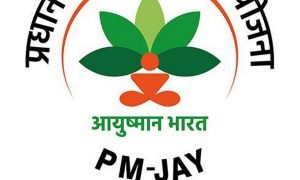On Tuesday, August 20, IDBI Bank raised the interest rate on its Utsav Fixed Deposit scheme to 7.85 per cent for a period of 444 days. The bank said that the offer is valid for a limited period.
Read More: IRDAI Calls For Strategies To Lower Insurance Premiums, Aims For Universal Coverage By 2047
IDBI Bank’s Utsav FD: New FD Rate
The FD rate was raised to 7.85 per cent and 7.75 per cent annually for the time period of 444 days and 375 days. With this improvement, the Utsav Fixed Deposit is an even more appealing choice for those customers looking for higher returns, the bank stated.
Read More: Why Do Mutual Funds Hit Pause On New SIP? Here’s What You Need to Know
IDBI Bank’s Utsav FD: Offer Period
The bank added that the customers can open an Utsav Fixed Deposit easily through the mobile banking app or the bank’s website or at any branch of the bank.
Apart from this, competitive offers are being offered by the IDBI Bank under the Utsav Fixed Deposit Scheme on other special terms. A maximum rate of 7.70 per cent is being offered for the 700 day period while a rate of 7.55 per cent is being offered for the 300 day period.
Concerns over the slow deposit growth rate in comparison to credit growth have been expressed by both the Finance Minister and the RBI Governor.
Read More: Indian Small Finance Banks To Grow Their Advances 25-27 Per Cent This fiscal: Report
Concerns over household savings flowing to alternative investment avenues were raised by RBI Governor Shaktikanta Das, who also advised banks to leverage their extensive branch network to mobilize deposits through creative products and services.
“Banks are taking greater recourse to short-term non-retail deposits and other instruments of liability to meet the incremental credit demand. This, as I emphasized elsewhere, may potentially expose the banking system to structural liquidity issues,” he stated earlier this month.
During a review meeting on Monday, public sector bank heads were ordered by Finance Minister Nirmala Sitharaman to conduct special campaigns in order to gather deposits.
For the past few months, deposits have been lower than credit growth by 300–400 basis points, which has left banks with an asset-liability mismatch.





































